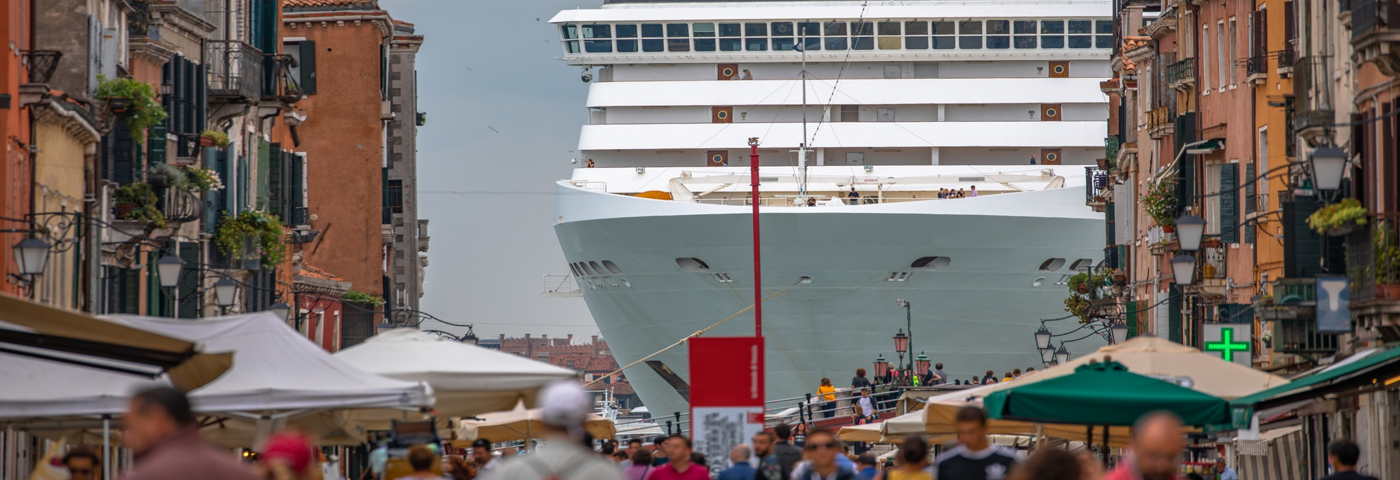As the UK’s Tourism Concern pointed out in a long-running campaign “We take our holidays in other peoples’ homes.” Way back in 1994 Colin Marshall, at the launch of the Tourism for Tomorrow Awards, point out the tourism and travel industry as “…essentially the renting out for short term lets of other people’s environments, whether that is a coastline, a city, a mountain range, or a rainforest.” For local communities and their politicians t. Tourists don’t have votes in their destination, it is someone else’s home.
Destinations belong to the people who live there and who maintain the places we love to visit. Unconstrained the industry, and their customers, are quite capable of loving them to death. The honeymoon is over as an increasing number of destinations are facing up to the challenge of managing tourism to meet local needs and to avoid the damage caused by tourist, day visitors and the tourism industry.
Tourism consultant Frank Haas told the Hawaii Tourism Wholesalers Association (HTWA) last week, that inflation-adjusted spending per visitor is diminishing, “…eroding resident sentiment, and increasing congestion and stress on sites and attractions provide evidence that the current governance model is inadequate for effectively managing the increasingly complex issues facing Hawai‘i tourism.” His book Hawai‘i: Paradise on the Precipice will make the case with plenty of evidence. As he points out a “…growing visitor base with complex management issues requires more, not less, funding for visitors, safety, site management and other programs to maintain the visitor experience and resident quality of life.” Taxing tourists and day visitors applying the polluter pays principle gathers support.
There are reports of popular cruise destinations to “join forces” to oblige cruise lines to “launch ships compatible with our structures and the environment”. Venice’s port authority has called on other cruise ship destinations such as the ports of Barcelona, Amsterdam, Marseille, Dubrovnik, Zeebrugge, Hamburg, Palma and Málaga to close ranks in tackling the dangers posed by massive vessels. Ship Technology reports on measure taken by local authorities in Amsterdam, Barcelona, Bruges, Dublin, Dubrovnik and Santorini to reduce and manage pressure from cruise ship arrivals including imposing taxes on tourist arrivals and reducing arrivals or relocating them further away. Gala Pin, a councillor in Colau’s last administration, compared cruise passengers to “a plague of locusts” . As Ada Colau has pointed out Barcelona does not have infinite capacity, nowhere does.
There are business opportunities as destinations seek to improve the quality of places for people to live in. Great places to live are great places to visit. The experiential market trend and the willingness to pay for great experiences favours those who provide them and can lead to better margins as a result of non-price competition.
As Olivier Hannaert, Managing director at Club Med Southern Africa, “…it should be every travel brand’s obligation to ensure each of their destinations are as appealing as possible. But beyond that, it should be an obligation for each brand to ensure that the impact of their resorts and offerings on the planet are as sustainable and responsible as possible.” The industry has an opportunity to give peace of mind to those who may have concerns about the impacts of their travel and for the others to provide “…a conscientising activity that will hopefully inspire them to make more sustainable and responsible decisions in their everyday lives once they return from their holiday.”
As Manisha Pande of Village Ways operating in the sub-continent says: “I firmly believe that the first thing people must see when they come to our website is that we are offering fun, experiential and immersive holidays.” When they find that their money is going to local communities, that they are having fruitful interactions, it is a bonus which brings them back.


